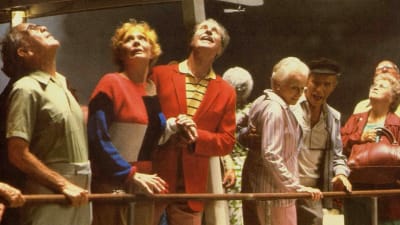The importance of the 1982 Disney movie “Tron” can’t be understated. While its early CGI effects look quaint now, they were revolutionary for the time and paved the way for countless later movie effects. With “Tron: Ares” currently playing in theaters, the film’s creator, Steven Lisberger, recently discussed the original film’s legacy and its relevance in our current AI age.
The Tron Creator on the Original Film and AI

As reported by /Film, Lisberger discussed the first movie in the October 2025 issue of SFX Magazine. He talked about how the original film was made in a different time, when people were more hopeful about technology’s possibilities, as opposed to today, when AI has many people uncertain about the future. He had this to say:
“We were very naive back then and so optimistic, but it felt different . . . It was a wonderful opportunity and the tools were so amazing . . . I hear people are shocked that AI is hallucinating and making mistakes. That’s a blessing. It’s quite charming. I will be much more scared if someone tells me AI never makes mistakes. That’s when the real problem starts. I like to say that it’s imperative that we, as an artistic community, kick this technology around before it kicks us around. I’m weary of hearing all the dreary and apocalyptic predictions of the future of technology.”
The “Tron” movies have always been about the conflict between humanity and technology and the blurred line between the two. All three movies involve humans, in one way or another, losing control of computer programs, even though the programs claim to be carrying out the humans’ directives. In the original film, the Master Control Program becomes intelligent enough to evolve beyond human control. In the sequel, “Tron: Legacy,” Kevin Flynn’s digital double, Clu, establishes a dictatorship in the Grid because he is programmed to “create the perfect system.” Without spoiling anything, “Tron: Ares” also involves a program going rogue while carrying out directives.
More to Say About AI
In an earlier interview with Polygon, Lisberger talked about how our use of AI reflects who we are as people. He said,
“The deeper you look into the void, the more you reveal about yourself. And this whole effort of creating cyberspace, creating AI is, in the end, probably going to reveal more about us than about technology. It’s really a form of mirror that we’re creating. And the question is: Is it going to be something that we utilize in a positive way?”
The idea of technology as a mirror played heavily in the first “Tron” movie, where most of the main programs were played by the same actors as their respective human users. The theme continued in “Legacy,” where Kevin Flynn created a digital replica of himself, only to find that the replica was corrupted by Flynn’s own shortsighted perspective.
Meanwhile, in “Ares,” we have the digital warrior Ares, played by Jared Leto, rebelling against his programming and slowly evolving into his own being, separate from his user. This opens up another whole dimension to the mirror theme. Where is the line between AI being an extension of humans and AI becoming its own thing?
Final Thoughts
As AI becomes more and more prominent in our society, the world is asking questions about how we properly use it. The “Tron” movies have perhaps become more relevant than ever as we wrestle with what it means to be human versus what it means to be virtual. If AI can write stories and draw pictures, then will we reach a point where we lose our creative abilities because we’re handing them over to AI? Will AI become more human than us? As we watch Ares on his journey towards becoming more human in “Tron: Ares,” we have to wonder if a real program will ever go on the same journey.
More must-reads:
Customize Your Newsletter
 +
+
Get the latest news and rumors, customized to your favorite sports and teams. Emailed daily. Always free!







